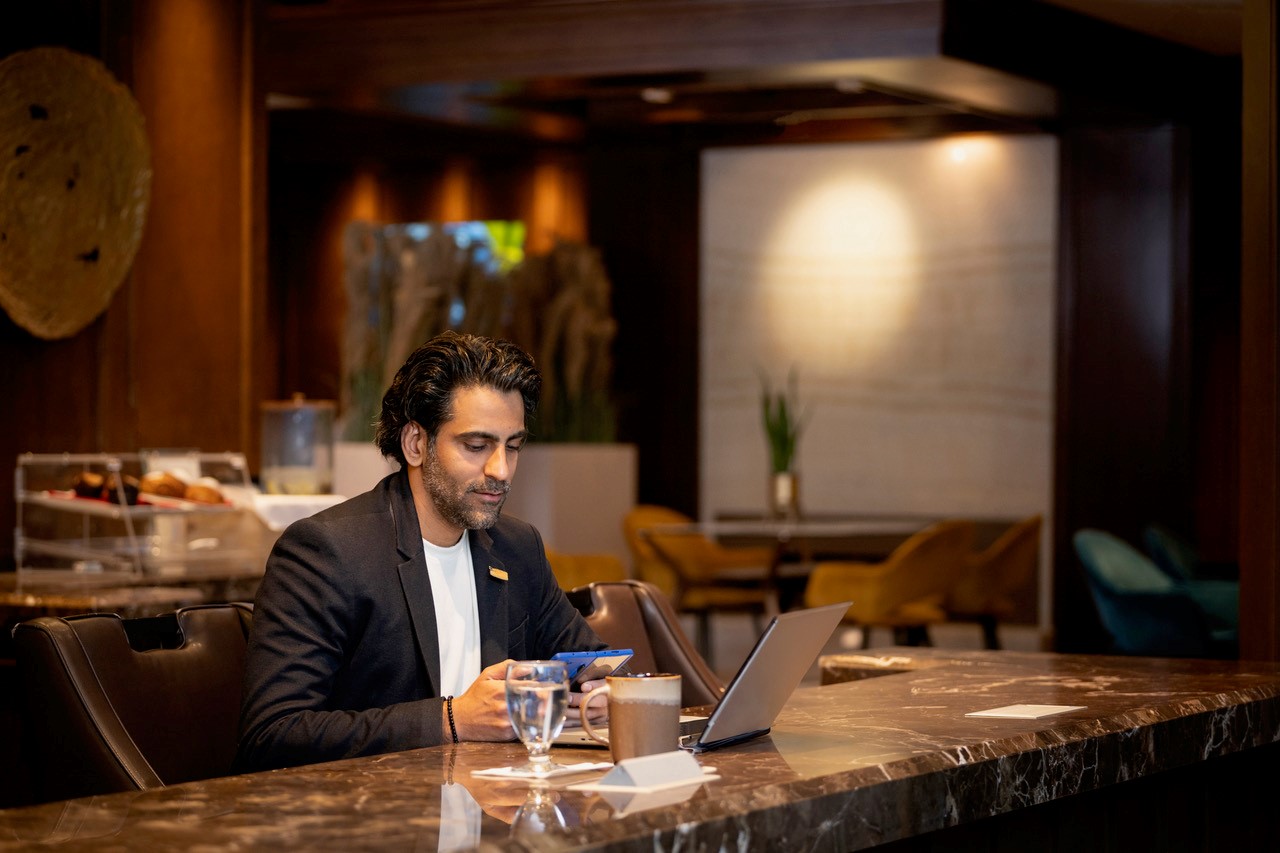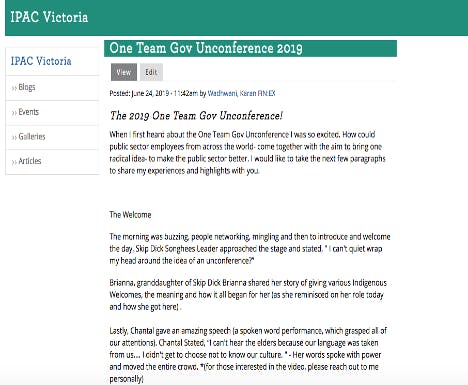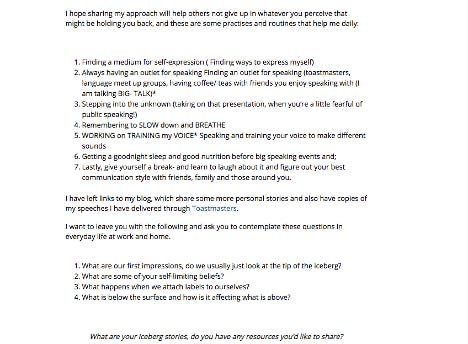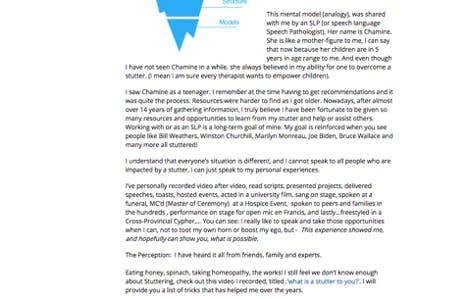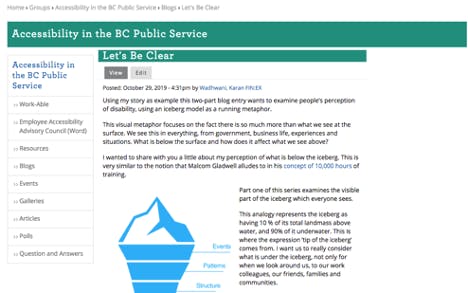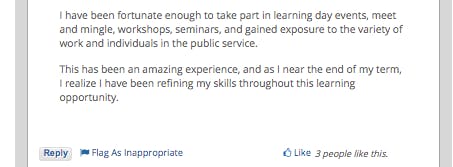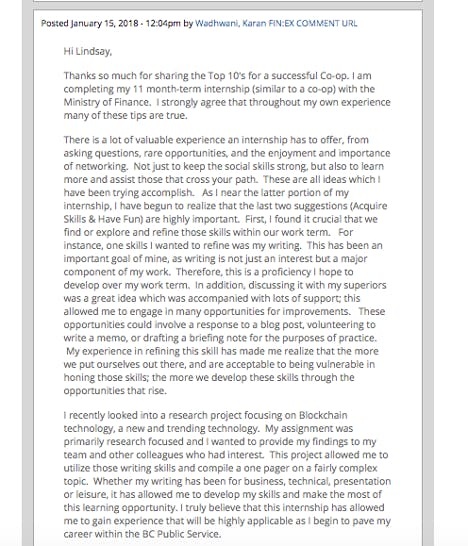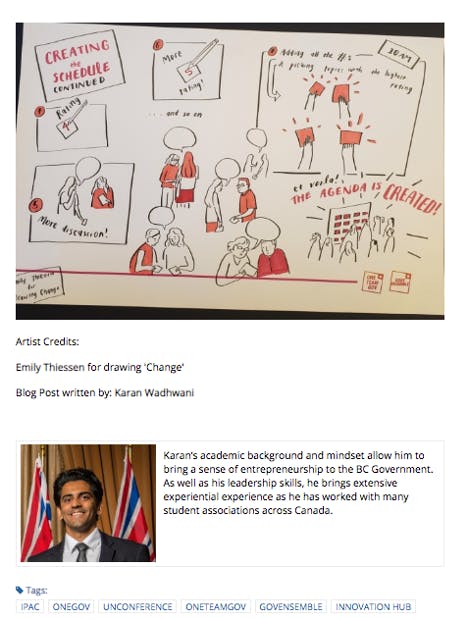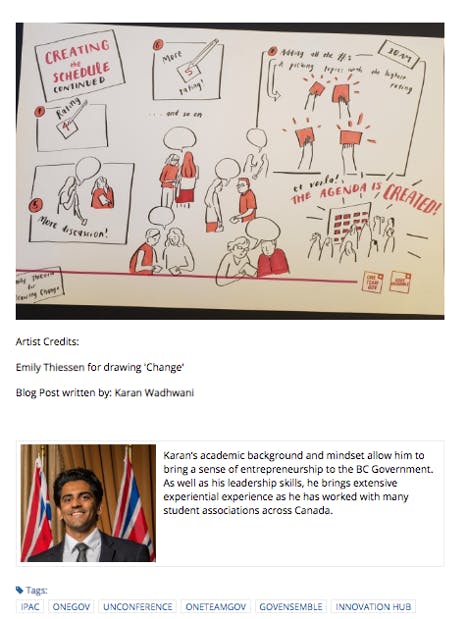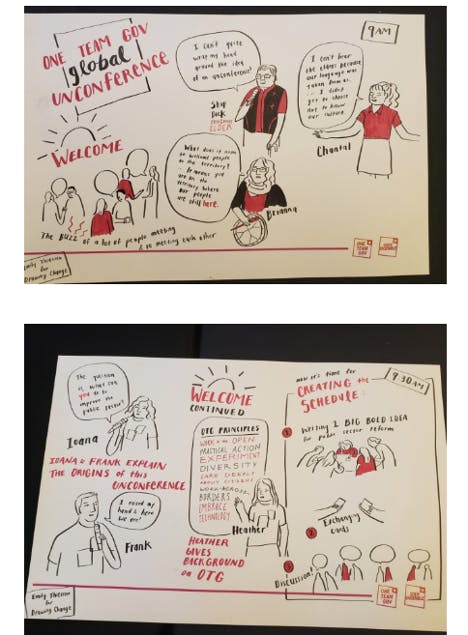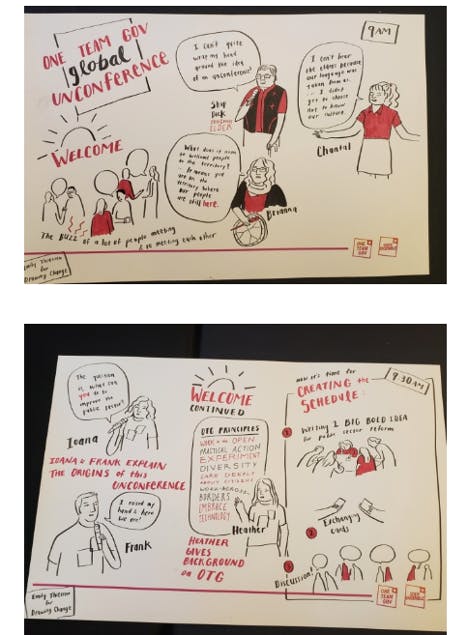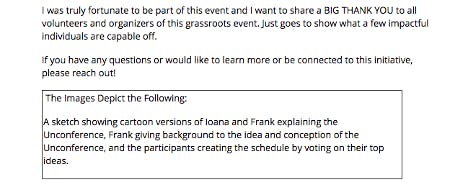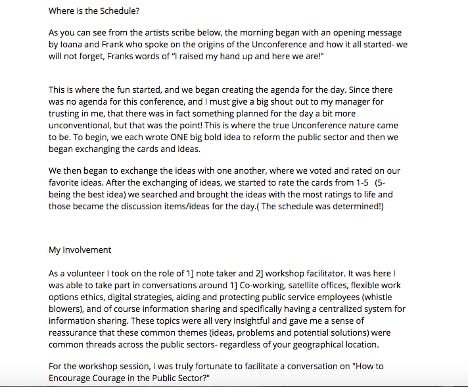Corporate Reflective Writing
Articles from Corporate Publications
This was written by Karan Wadhwani without the use of AI
Corporate: Reflective Writing Articles from Corporate Publications
1] Accessibility in the Public Service- Let's be Clear 2] One Team Gov- unconference 2019 Other work and Publications available on my personal Instagram @Kwadhwan Let’s be clear (Part One) Using my story as an example, these two-part blog entries examines people’s perception of disability, using an iceberg model as a running metaphor. This visual metaphor focuses on the fact there is so much more than what we see at the surface. We see this in everything: government, business life, experiences, and situations. What is below the surface, and how does it affect what we see above? • And similar to a home, it all starts at the bottom of the foundation, where the roots are grounded, where the paths paved; below the iceberg are the interact events, patterns, s structures and models that we build for ourselves. So I wanted to share a little about my perception of what is below the iceberg. This is very similar to Malcolm Gladwell’s notion of 10,000 hours of training. , we don’t see the 1,000th or 10,000th hours of training; all we see on the surface is the 1-minute Olympic race. Part one of this series examines the visible part of the iceberg everyone sees. This analogy represents the iceberg as having 10% of its total landmass above water and 90% underwater. This is where the expression ‘tip of the iceberg’ comes from. I want us to consider what is under the iceberg, not only when we look around us but at our work colleagues, friends, families and communities. This mental model (analogy) was shared with me by a speech-language pathologist (SLP) Her name remains anonymous , and the important role they plan in a patient’s life is personal and critical - I mean, I am sure every therapist wants to empower children. I saw my SPL as a teenager. I remember having to get recommendations at the time, and it was quite the process. Resources were harder to find as I got older. After almost 14 years of gathering information, I truly believe I have been fortunate to be given so many resources and opportunities to learn from my stutter and help or assist others. Working with or as an SLP is a long-term goal of mine. My goal is reinforced when I remember people like Bill Weathers, Winston Churchill, Marilyn Morneau, Joe Biden, Bruce Wallace, and many more Greats all stuttered! I understand that everyone’s situation is different, and I cannot speak to all people impacted by a stutter; I can only speak from my personal experiences. I’ve recorded video after video, read scripts, presented projects, delivered speeches, toasts, hosted events, acted in a university film, sang on stage, spoken at a funeral, MC’d (Master of Ceremony) at a Hospice Event, spoken to peers and families in the hundreds, performed on stage for open mic en Francis, and lastly…freestyled in a Cross-Provincial Cypher. You can see: I love to speak and take those opportunities when I can; not to toot my own horn or boost my ego, but - this experience showed me, and hopefully can show you, what is possible. The Perception: I have heard it all from friends, family, and experts.Eat honey, and spinach, taking homoeopathy, the works! I still feel we don’t know enough about stuttering; check out this video I recorded, titled, ‘what is a stutter to you?’ I provide you with a list of tricks that have helped me over the years. I hope sharing my approach will help others not give up on whatever they perceive that might be holding them back. These are some practices and routines that help me daily: Finding a medium for self-expression (finding any way to express yourself) Always having an outlet for speaking Finding an outlet for voicing (toastmasters, language meet-up groups, having coffee/tea with friends you enjoy chatting with (I am talking BIG- TALK)* Stepping into the unknown (taking on that presentation when you’re fearful of public speaking!) Remembering to SLOW down and BREATHE WORKING on TRAINING my VOICE Speaking and training your voice to make different sounds Getting a goodnight's sleep and good nutrition before significant speaking events Lastly, give yourself a break- and learn to laugh about it and figure out your best communication style with friends, family and those around you. I have left links to my blog, which share some more personal stories, and I also have copies of the speeches I have delivered through Toastmasters. I want to leave you with the following and ask you to contemplate these questions at work and at home. 1] What are your first impressions? Do you usually just look at the top of the iceberg? 2] What are some of your self-limiting beliefs? 3] What happens when you attach labels to yourself? 4] What is below the surface, and how is it affecting what is above? 5] What are your Iceberg stories? Do you have any resources you’d like to share? Part 2: Speaking and Training In this blog post, I examine my interactions with people as a stutter and more into training. Additional Information for Part 1 or Part 2 are more resources, tools, and tricks I have learned a lot along the way. There is an organization called ISTAR in Edmonton which I have heard fantastic things about, as they have an intensive program and are heavily researched and focused on intense treatments. I would classify this as a high-intensity course within a short period of time) * I think this is the new norm for behavior change and the most effective medium for influencing change (coincidentally, this style of condensing education into a condensed time is being used in various delivery for workshops, self-improvement, learnings, and much more, usually 8- 72 hours in length). Within social circles are self-help groups, peep groups, online groups, a Canadian stuttering association, and a stutter blog. I stutter. I have been in groups, forums and blogged about it. Speaking and training your voice to make different sounds (I will tell you more about my experience with a voice coach, Peter McCoppin, who taught me some techniques in speaking, and relating to the movement of voice and sound and how to use our bodies when speaking). In speech singing and opera, I was fortunate to meet Najla Abujauda of Sing Well, Speak Well (Victoria). Nagla) helped me and taught me some techniques which I now often share with others. It is the ability to use your nose when you speak; by focusing on this, you can use more of your nasal passage and increase airflow, which helps omit different expressions on your face. Thus, using more air. Through Nagla [the renowned opera singer and teacher] my home became filled with warm andnutrient-filled foods. And, what an energetic woman! Did I forget to mention she just turned 90? Lastly, I love hearing other stories. I think that is where you can find the beauty in learning through different experiences. You can find me often indulging in Confabulation, the moth. NPR, CBC Radio. You name it, and it is out there!
